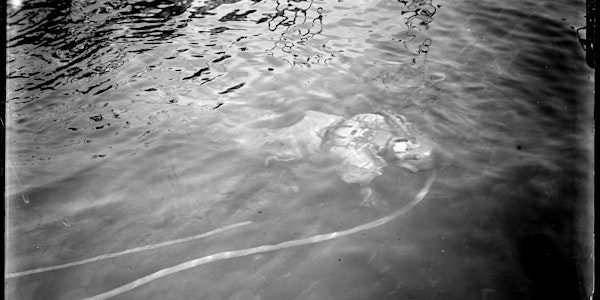This talk is part of a series entitled 'Out ot Sea', which will focus on the influence of oceans and their coasts, in relation to Britain and its global empire, on visual and architectural imagination and production.
Talk description
Built by British convicts and settlers on the ancestral lands of the Gadigal people, following invasion and dispossession in 1788, Sydney began as a colonial town and in 1842 became a colonial city. Sited on the shores of Sydney Harbour, for much of the nineteenth century the city was designed for ships and shipping and from the start the area underwater figured directly in the city’s expansion. Yet maritime history and ocean history take a lesser place in Australian European culture to land history, and some ocean-oriented histories have been neglected, among them the story of diving and divers in the construction of the city and in conceptions of place.
This presentation, selected from work in progress, addresses this; relating the history of deep sea divers who worked below the harbour’s surface to build urban infrastructure, salvage lost treasure and remove obstacles to industrial progress. Wearing standard diving dress and screwed-down helmets they undertook hidden labour in an unstable environment. Returning to the surface they shared their impressions and aesthetic experiences with the press and through the media shaped states of imagination about the harbour floor in the centre of everyday life.
The first European to descend to the bottom of Sydney Harbour, and to test the first diving dress imported from London, was a convict. Sent below by his master in 1837 to retrieve a sunken box of silver coins his story sets the stage for an undersea history of the iconic Sydney Harbour that begins with the interconnection of colonialism, capitalism and convict slavery. While the presentation situates ocean studies in relation to a specific geographical location, it also recognises that many social, cultural and environmental issues are global.
Speaker biography
Professor Ann Elias, Department of Art History, The University of Sydney
Ann Elias began a career as an academic in art history at the University of Auckland, New Zealand before taking a position in 1990 at Sydney College of the Arts, the University of Sydney and in 2017 in the Department of Art History at the University of Sydney. She is a researcher of imagery relating to camouflage in art, war and nature; of flowers in natural history and art; and of the aesthetics of the underwater regions of oceans. Her latest book, Coral Empire (2019) discusses the adventures and explorations of early photographers in tropical waters in the Bahamas and the Australian Great Barrier Reef. More recent work investigates early theories of underwater optics and subaquatic animals including an article forthcoming in 2024 in Leonardo on fish, fishers and underwater vision. A new book in progress on Sydney Harbour continues an inquiry into human entanglements with oceans.
Respondent biography
Morgan Daniels, Senior Lecturer in History and Media at Arcadia University, The College of Global Studies, London Center
Morgan Daniels received his PhD from Queen Mary University of London and is currently writing a book on London's relationship to the sea. His most recent publication was “The Art of Cable Laying” in Emma Roberts (ed.), Art and the Sea (2022).
Image credit: Diver coming to the surface, Department of Public Works, glass plate negative, c.1920, NSW State Archives, NRS-4481-4-796-
